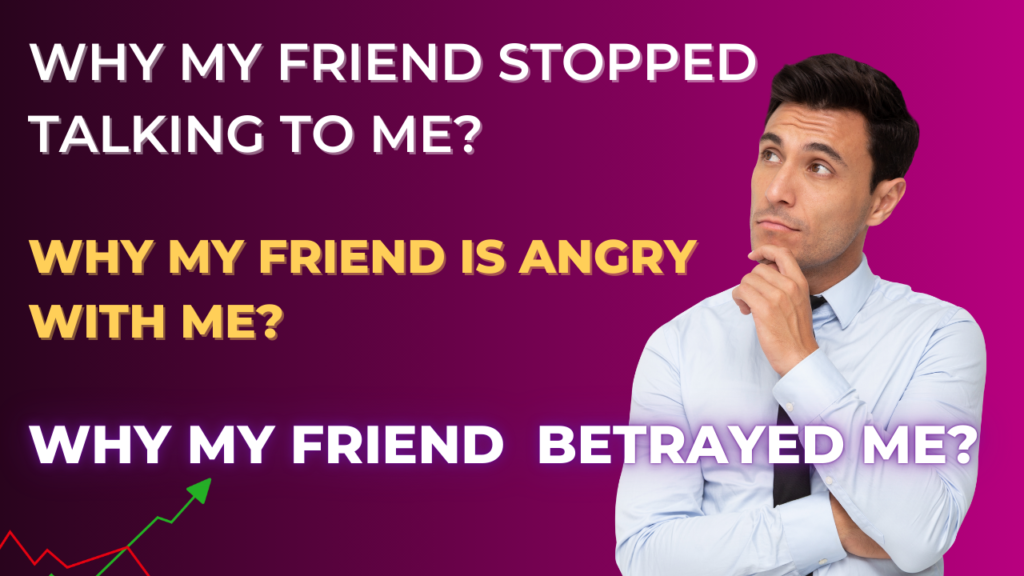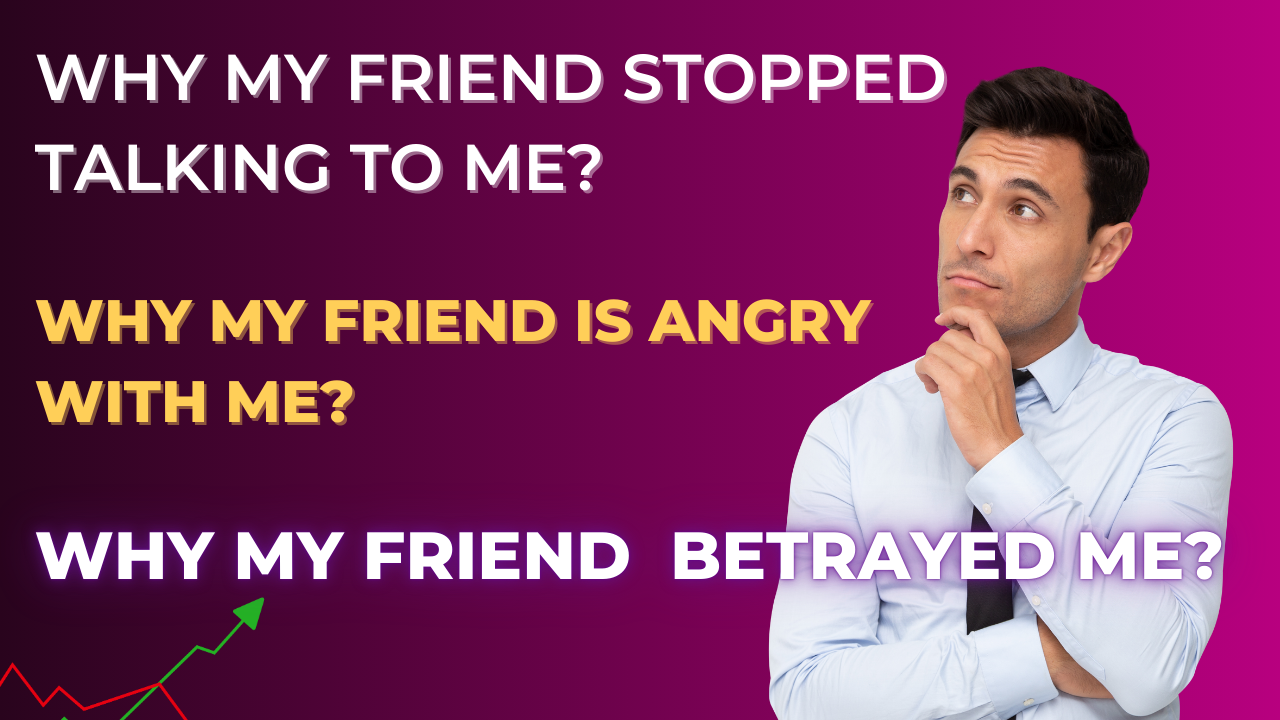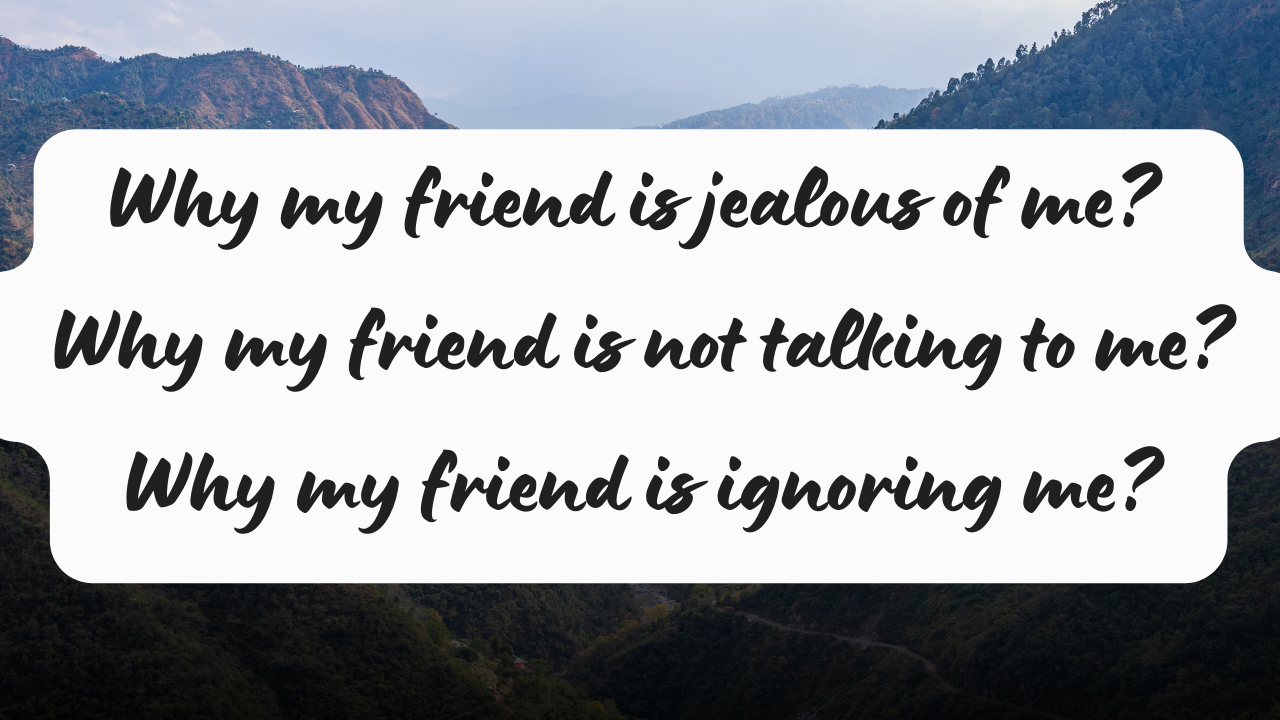Frequently Asked Question – Wisher
Why my friend stopped talking to me?
When a friend suddenly stops talking to us, it’s natural to feel confused and concerned. There are many reasons why this might happen, and understanding them can help us navigate the situation with care. Your friend might be dealing with personal struggles, such as stress, depression, or other emotional challenges. During tough times, some people withdraw from social interactions as a way to cope, and this could be why they’re not reaching out.
Another possibility is that your friend is simply overwhelmed by life’s demands. New jobs, school commitments, or family responsibilities can take up a lot of time and energy, leaving little room for maintaining regular communication. It’s not that they don’t value the friendship, but they might be struggling to balance everything on their plate.
If there’s been a recent conflict or misunderstanding, this could also be a reason for the distance. Sometimes, instead of confronting issues directly, people choose to step back and process their emotions on their own. Similarly, if your friend has entered a new romantic relationship or is focusing on other friendships, they might unintentionally neglect existing ones. This shift in priorities is common and doesn’t necessarily reflect their feelings about you.

So, what can you do? If you feel comfortable, try reaching out with a simple message expressing your concern and letting them know you’re there for them. However, if they don’t respond, it’s important to respect their need for space and avoid pushing for immediate answers. Reflect on the overall dynamics of your friendship—if this is part of a larger pattern, it might be worth considering whether the relationship is healthy for you.
Talking to mutual friends might give you some insight into what’s going on, but be careful not to involve others inappropriately. Finally, if your friend continues to ignore you despite your efforts, it may be necessary to accept that the friendship has changed. In such cases, focusing on your own well-being and considering moving on might be the best path forward. Approaching the situation with empathy and clarity can help you decide the best way to proceed, whether that means reconnecting or giving your friend the space they need.
Why my friend is angry with me?
When a friend is angry with us, it can be difficult to know what went wrong and how to fix it. Understanding some common reasons for their anger can help us approach the situation with empathy and care. One of the most frequent causes is miscommunication. It’s easy for words or actions to be misinterpreted, leading to feelings of hurt or frustration. Your friend might have perceived something you said or did in a way you didn’t intend, which could be the root of their anger.
Another possibility is that past grievances are resurfacing. If there have been unresolved issues or hurtful comments in the past, your friend might still be holding onto those feelings. This can lead to current conflicts, even if the original issue seems long forgotten. Additionally, your friend might be dealing with personal struggles that have nothing to do with you. Stress from work, family, or other life challenges can sometimes cause people to react more strongly than usual, taking out their frustrations on those closest to them.
Feeling disrespected is another common trigger for anger. If your friend feels that you’ve crossed a boundary or shown a lack of respect, it could have upset them deeply. This could be related to a specific incident or a pattern of behavior that they find hurtful. Lastly, feelings of jealousy or insecurity can sometimes manifest as anger. If your friend feels threatened by changes in your life or relationships, they might express those feelings through anger.
So, how can you address the situation? Start by reflecting on your recent interactions. Try to identify anything that might have upset your friend. If you feel comfortable, reach out and ask if they’re willing to talk. A simple, caring message like, “I’ve noticed you seem upset. Did I do something that hurt you?” can open the door for honest communication. If you realize that you may have hurt your friend, offering a sincere apology can help mend the rift. However, if your friend isn’t ready to talk, it’s important to give them space and be patient. Sometimes, people need time to process their emotions before they can have a constructive conversation.
By understanding the reasons behind your friend’s anger and approaching the situation with empathy, you can work towards resolving the conflict and potentially strengthening your friendship in the process.
Why my friend betrayed me?
Experiencing betrayal from a friend can be one of the most painful and confusing events in a relationship. When someone you trust acts in a way that deeply hurts you, it can leave you questioning not only the friendship but also your own judgment. Understanding the potential reasons behind their actions can help you make sense of the situation and decide how to move forward.
One reason a friend might betray you is self-centeredness. Some individuals tend to prioritize their own needs and desires over the well-being of their friends, which can lead to selfish behaviors like sharing your secrets or excluding you from activities. They might not consider how their actions affect you because they’re too focused on what benefits them. Similarly, if a friend is dealing with anger or frustration, they might betray you as a way of avoiding conflict. Instead of addressing their feelings directly, they might act out in a way that harms the friendship, possibly because they fear confrontation or don’t know how to communicate effectively.
Personal struggles can also drive a friend to betray you. When someone is going through a difficult time—such as dealing with mental health issues, relationship problems, or major life changes—they might act out in ways that they normally wouldn’t. Their judgment can become clouded by their emotional turmoil, leading them to make decisions that hurt those around them. Jealousy or insecurity can also play a role in betrayal. If a friend feels threatened by your successes or relationships, they might lash out by gossiping about you, undermining your achievements, or doing things that they know will hurt you. Finally, changing priorities can cause a friend to betray you. As people grow and their lives evolve, they might become more invested in new relationships or social circles, leading them to neglect old friendships. This shift in priorities can feel like a betrayal, especially if you feel left behind or disregarded.
Coping with betrayal starts with acknowledging your feelings. It’s normal to feel hurt, angry, and confused, and it’s important to allow yourself to process these emotions. Talking to trusted friends or family members can provide relief and help you gain perspective. Reflecting on the overall dynamics of the friendship can also be helpful. Were there signs of unhealthy patterns or behaviors that you overlooked? Understanding these can inform your approach to future relationships. If you feel ready, consider communicating with your friend about what happened. This can provide clarity and possibly lead to an apology or understanding, but be prepared for any outcome, including the possibility that they might not acknowledge their actions.
In some cases, setting boundaries may be necessary to protect yourself from further hurt. This might involve limiting contact or reassessing whether the friendship is worth maintaining. Lastly, focus on healing. Engage in activities that bring you joy and relaxation, and prioritize your mental and physical well-being as you navigate the emotional fallout from the betrayal.
Understanding why your friend may have betrayed you and taking steps to heal can help you move forward with a clearer sense of what you need in your relationships and how to protect yourself in the future.




Your words feel like a conversation with an old friend — intimate, thoughtful, and deeply human.